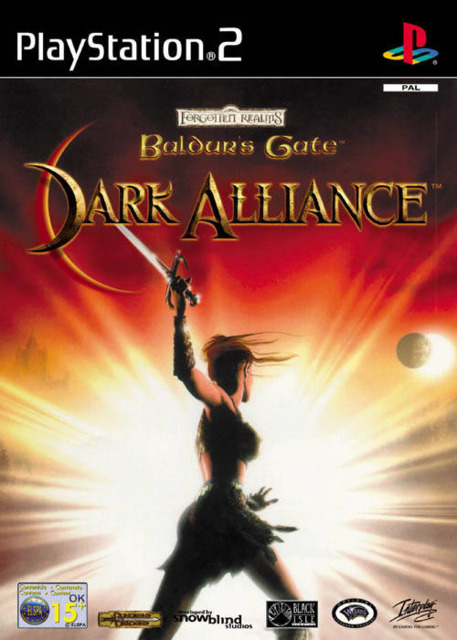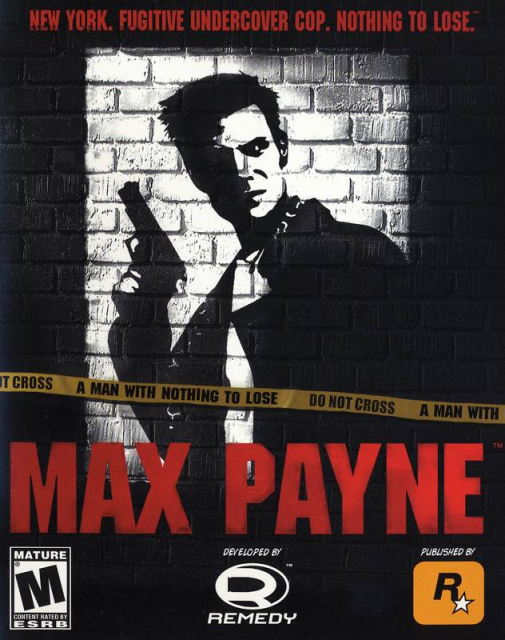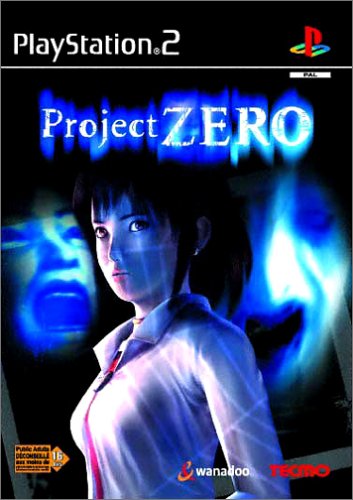The Top Shelf: Case Files 041-045: "Jaks, Max and Kodaks"
By Mento 0 Comments
Welcome to The Top Shelf, a weekly feature wherein I sort through my extensive PS2 collection for the diamonds in the rough. My goal here is to narrow down a library of 185 games to a svelte 44: the number of spaces on my bookshelf set aside for my PS2 collection. That means a whole lot of vetting and a whole lot of science that needs to be done, five games at a time. Be sure to check out the Case File Repository for more details and a full list of games/links!
Case File 041: Naughty Dog's Jak and Daxter: The Precursor Legacy

- Original Release (NA): 03/12/2001
- Not PS2 Exclusive (rereleased in the Jak and Daxter Collection)
Now this is more like it. Jak and Daxter is the first significant mascot platformer that the PlayStation 2 could call its own: a fantastic N64-era collectathon with Naughty Dog's attitude and a large, connected, lived-in world filled with characters that, though purely existing for the sake of directing players to the next set of Faberge knock-offs to collect, managed to reflect an upward momentum in Naughty Dog's future character development that would later progress to the wisecracking adventure serial movie cast of Uncharted and the tragic, broken human beings of The Last of Us. I'll be darned if I can remember any of those characters, but I do recall how the game didn't so much stick to the standard hub world with a bunch of portals leading off to discrete levels, but tied every region together in a linear story thread with various characters floating in and out of the plot, and the jumping, climbing, collecting and (occasional) hoverbiking sections serving as the cement holding these story scenes together. More than all that, though, is a core of polished and fluid controls that is integral to any game of this genre.
Later Jak games would edge away from being overt platformers and instead aim for a more well-rounded action-adventure series that highlights more of the vehicles and gun combat, for better or worse. Personally, as a 3D platformer fanatic, I felt it was a detrimental move though I also recognize it as one that helped the series find its own distinct voice. Thus, Jak and Daxter: The Precursor Legacy is not only my favorite Jak game but my second favorite 3D platformer for the system. (There is the small matter of the HD Collection as well, which served to give me pause when giving Final Fantasy X a free pass, but now I'm under the impression that the importance of both games supersedes that.) Welcome to the shelf, mute and rodent. Approved.
Case File 042: Snowblind's Baldur's Gate: Dark Alliance

- Original Release (NA): 04/12/2001
- Not PS2 Exclusive (ported to the Xbox and GameCube)
The Baldur's Gate series is best known as one of the most substantial and well-written CRPG franchises to come out of the D&D license in quite a while, and the series that would launch BioWare as a major contender in that field. However, Snowblind recognized that such a leisurely-paced keyboard & mouse-driven RPG series would not fly quite as well on a console, and modified the game's blueprint to more resemble a hack-and-slash loot game in the vein of a Diablo, with the Forgotten Realms setting and quest structure largely intact. It's like when you've been tasked to release the same game on console and portable, and you determine that because a lot of concessions would need to be made for the portable version to work, you're better off building a distinct game that works with the portable system's strengths instead. At least, that's what I feel was the strategy here.
However, I am at something of an impasse with regards to this game as it pertains to that whole shelf business I keep bringing up. The first issue is that the game was released on multiple consoles, giving it less weight in negotiations for that space with others of a more exclusive bent. The other complication is that of its sequel, Dark Alliance II, which didn't evolve the game either mechanically or graphically as much as I might have preferred but was still slightly stronger on the whole. Then you have Snowblind's other major RPGs for the PS2 which used the same engine - Snowblind probably figuring that they didn't need to fix what wasn't broken - and created superior variants of this game's hack-and-slash formula for both of their "Champions" games, this time based on the EverQuest MMORPGs. For the sake of expediency then, because I don't want to have to replay too many enormous loot RPGs in the second round if I can help it, I'm going to remove this one from the proceedings. I imagine it'll come down to the second Champions versus the second Dark Alliance further down the line. Eliminated.
Case File 043: Remedy's Max Payne

- Original Release (NA): 06/12/2001
- Not PS2 Exclusive (originally a PC game)
Max Payne not only introduced us to Remedy's much beloved creative direction of giving homage to pulp novellas and their purple prose, but engineered a gameplay variant of The Matrix's showy "bullet-time" technique that would help players to carefully pick out targets in the middle of an action pose or dramatic leap, a genius mechanic that sidestepped the usual tedium of cover-based shooters by giving players the power over time itself as their advantage in firefights. Unfortunately, Remedy would take that idea a little too literally for the maligned Quantum Break, but that's neither here nor there (or maybe "neither then nor now"?). What is here and now is Max Payne, the first of three games featuring a tormented, pill-popping detective on the hunt for his family's killers, occasionally having psychotic episodes which manifest themselves as brutally annoying hallucination sequences. Max Payne was not a game that ever felt like slowing down, perhaps an ironic statement given the game's aforementioned central gameplay feature, and created innovation after innovation in order to move its peculiar take on a noir video game narrative along.
It's a fantastic game, and one I prefer over its sequels (I've yet to play Max Payne 3, but nothing about that setting really appeals to me), though the fact of the matter is that the game plays far better on a PC. It is, essentially, a PC keyboard & mouse kind of shooter game, with the PS2 controls squandering much of the split-second precision that the bullet-time feature would otherwise afford. Though a convenient option for me at a time when my currently-owned PC could do little more than save zingers in a file and look up chaps and lads from history (which also happens to be my present PC situation) I can't in good conscience recommend the PS2 version over the PC original, so there it goes. Eliminated.
Case File 044: Tecmo's Project Zero

- Original Release (JP): 13/12/2001
- Not PS2 Exclusive (ported to Xbox)
Project Zero is better known in the States as Fatal Frame, the photography horror game that is centered around a brilliant if cruel game mechanic that requires you to get as close as possible to its menagerie of spooks with a camera's viewfinder to perform the maximum amount of damage to them. Like many J-Horror games, the Fatal Frame series finds itself in archaic Japanese locales frozen in time - almost always the result of a botched ritual and a sudden emergence of "malice" from the underworld, which continues to trap wayward souls as they pass through the accursed region. There is some over-dependence on the survival horror funnel system: a system that requires players pass through a series of hoops in a very specific critical path that has them backtracking several times, largely so they can get attacked by the same recurring ghost encounters, but for the most part the game is able to create an atmosphere of foreboding and terror without sacrificing the player's ability to defend themselves. In fact, the timing and outsmarting involved with the combat is a significant chunk of what makes the game fun to play; a rare example of a survival horror game where the combat is enjoyable on its own merits instead of an awkward last ditch attempt to stay alive.
However, there is a problem with allowing this game through to the second round and it's an increasingly familiar one: the sequel is way better. Crimson Butterfly, themed around the unshakable bond between twins, not only has a more heartbreaking story but its particular stand-out foes like "Bloody Kimono" and "the Kusabi" are all the more memorable due to their frightening levels of invulnerability and tenacity. We will definitely be revisiting this series in the entries to come, but this is a dead end as far as the first Fatal Frame is concerned. Eliminated.
Case File 045: Planet Moon's Giants: Citizen Kabuto

- Original Release (NA): 20/12/2001
- Not PS2 Exclusive (originally a PC game)
I've attempted to get into Giants a few times in the past but it sits in a void in my brain alongside fellow turn-of-the-millennium games Outcast and Nomad Soul as profoundly weird titles, from concept to personality to gameplay, and thus a little challenging. However, all three of those games also have their fans for that very reason: in a sea of uninspired copycats and imitations, the truly weird can float to the top regardless of any objective standards of quality. Giants has the player take part in three distinct campaigns each with their own alien race across the same planet, with a similar gameplay engine but some significant differences between them. The game balances third-person combat with some mild RTS stuff, not too dissimilar from something like Brutal Legend but a little more interwoven, but the priorities and advantages shift depending on the alien you're controlling: the Meccaryns are a semi-satirical race of armored space marine gun nuts who are interested in beer, boobs and shooting things and little else; the Sea Reapers are more the classic ethereal blue ladies of sci-fi who are also seafaring vampires who cast elemental magic; and Kabuto is a singular creature of enormous girth who solves most of his problems either by butt-stomping them or putting them in his mouth. The game's sense of humor is not particularly erudite, but it is slightly endearing for a game to regularly pastiche itself, its narrative genre and its contemporaries.
The fact remains, though, that this has been a hard game for me to enjoy in the past. I don't quite recall why that is, though I suspect it has something to do with the RTS mode - I've never particularly cared for RTS at the best of times, and even less still when it interrupts a mode of gameplay I actually do like. Still, it's been so long since I last tried the game that I owe it another shot. I might immediately bounce off it once again, but at least I'll have done my due diligence, and done right by its fans. Considered.
Results
Dunno if you noticed that "Approved" up there for Jak and Daxter, but that's what I'm using for personal favorites that will fast-forward past all subsequent rounds and be granted a place on the shelf. Jak and Daxter will be the first of many, but there'll still also be a fair number of spaces left for the "Considered"s to fight over. Speaking of which, we saw one more "Considered" with Giants: Citizen Kabuto, largely because I need to refresh my memory on what I did and didn't like about it. I might surmise this early on that it'll end up booted out for being primarily a PC game - much like Max Payne, which couldn't bullet-time his way past a harsh cut - but at least this gives me an opportunity to try it out again. Dark Alliance and Project Zero, meanwhile, drop out due to that reoccurring superior sequel clause.
We're now 14 for 45 for games to be considered for the shelf, and have the first of our 44 spaces confirmed. Next time, if you recall from last week's postscript, The Top Shelf will start focusing on games in groups of ten instead of five. The next entry will also launch into 2002 - this week's update was the last of the 2001 games, in an odd quirk of fate - and get us ever closer to the PlayStation 2's peak. Expect many more "Considered"s and "Approved"s in the updates to come.
(And yes, as soon as the second round starts I'll be revisiting my stance on Final Fantasy X, now that I've determined with Jak and Daxter that a HD Collection does not necessarily preclude one from the prestige of shelfhood. There is one other matter of concern to handle first, however: whether it or Final Fantasy XII deserves to be the sole game to represent the series. I feel like that's a fight that might need its own compare & contrast blog to sort out. Could get controversial.)
